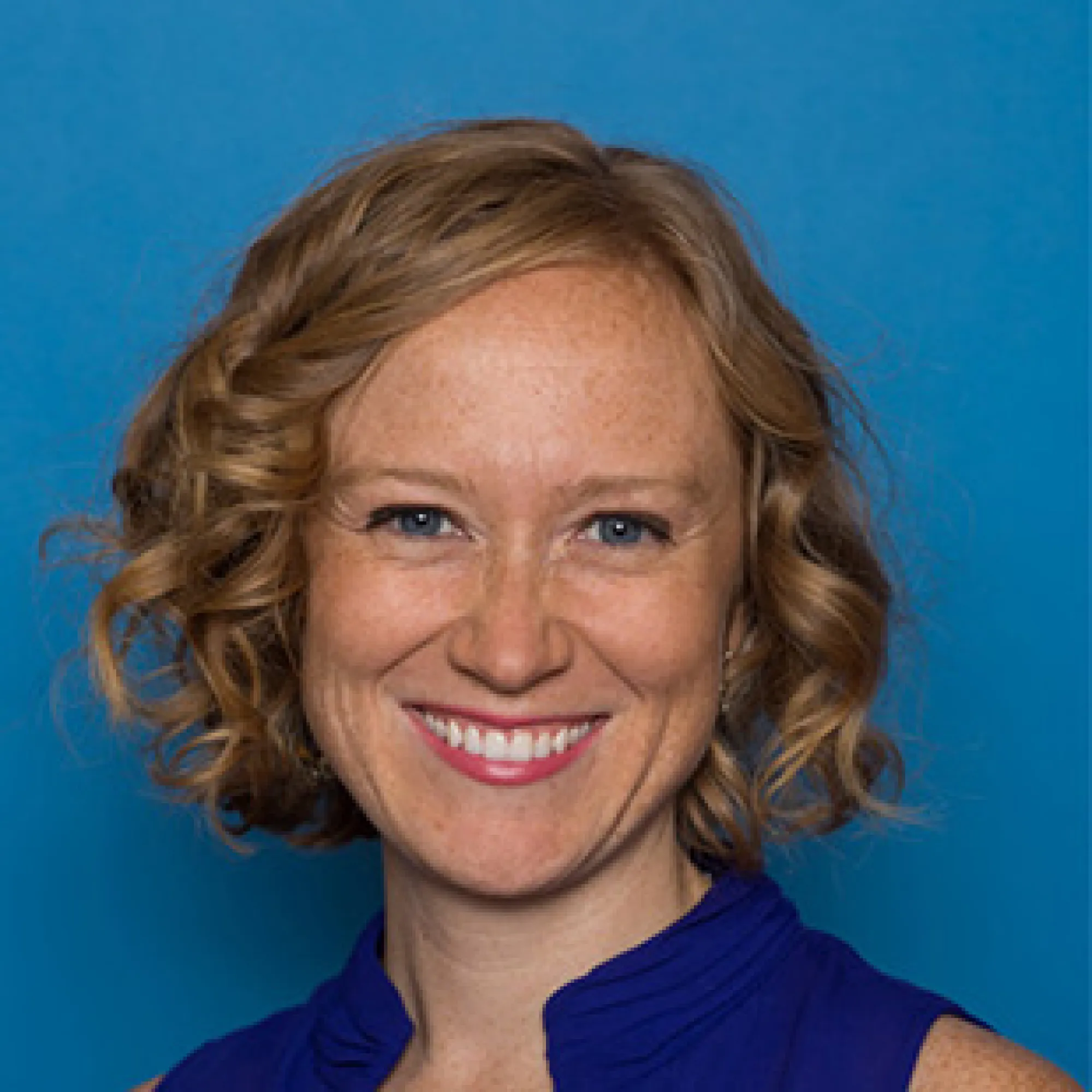CONTACT
Katie Dawson
Director, Drama for Schools
kathryndawson@austin.utexas.edu
Lara Dossett
Professional Learning Coordinator,
Drama for Schools
Drama for Schools Symposium
Come join us at the Drama for Schools Symposium as we celebrate and reflect on 20 years of Drama for Schools (DFS) partnerships, programs and research.The DFS network spans four continents and includes partners from universities, government and non-government education agencies, professional arts organizations, educators, artists and students from Texas, North America, Europe, Asia and Oceana.
The Drama for Schools Symposium at The University of Texas at Austin on May 15-16, 2026 will gather local, national and international DFS research partners together, in person, for the first time. Together, we will consider how drama-based pedagogy (and related practices) can be used to create more welcoming, equitable and engaged learning environments for all. Through panels, keynote speakers and performances and interactive sessions, the Drama for Schools Symposium will provide a critical gathering space to reflect on past work, learn new methods and envision a better possible educational future.
Be on the look out for:
- Symposium Registration
- Other ways to be involved in the planning of the symposium
- Apply to present at the symposium HERE
- Questions? Contact us at: dramaforschools@utexas.edu

Drama for Schools (DFS) is a collaborative professional development program model in drama-based instruction, in association with the Department of Theatre and Dance. Led by a cadre of leaders in their fields, this nationally heralded program:
- Creates intentional partnerships between the university and interested communities/school districts;
- Collaborates with K-12 teachers and curriculum specialists interested in exploring the potential of drama-based instruction to increase teacher efficacy and student engagement across the curriculum;
- Facilitates full day, half day and after-school trainings for teachers, administrators and community members interested in the application of drama-based instructional strategies (role play, improvisation, active learning techniques) across the curriculum;
- Provides partnering school districts ongoing data on projected outcomes;
- Shares program outcomes with community stakeholders and at related state and national conferences.
From our hometown of Austin to Texas' Rio Grande Valley to a small village in Alaska, Drama for Schools has partnered with schools and communities across the country for over 15 years.
How Drama for Schools Works
- Initial district and/or community needs and assets inventory
- One to three year commitment agreement
- Selection of cadre of academic teachers and community partners
- First year initial training sessions to drama-based instructional strategies
- Summer Institute for optional graduate-level credit
- Ongoing support and mentorship by university graduate students and faculty
- Membership to the Drama-Based Instruction (DBI) Network website
- Optional second and third year training as co-researchers and peer leaders
Through the DFS training program, teachers learn a range of tools that can be adapted to a variety of content areas and contexts, instead of one strategy for a specific lesson plan. In addition, these techniques support a variety of learning styles that keep students actively engaged in the learning process.
With group trainings and one-on-one mentorship, teachers learn drama-based teaching techniques with the eventual goal of becoming peer mentors to other teachers in their school. Teachers use DFS strategies to help meet both the academic and socio-emotional needs of students. These issues may include violence, racial tension, developing identity and community involvement. This dynamic process demands higher-order thinking skills and increases emotional intelligence. These effects have the potential to carry outside the life of the classroom and into community and social experiences for students.
Meet the Drama for Schools Staff
Partnerships
Current Partnerships
Austin, Texas
Austin Discovery School
Since 2010, Drama for Schools (DFS) has partnered with the Austin Discovery School (ADS), a tuition-free charter school located in east Austin. The school opened in 2005 and serves children in grades K-6, with an enrollment of approximately 400 students. ADS designs its curriculum by prioritizing students' prior knowledge and pro-social instruction. The curriculum features hands-on math and science, literary across the curriculum, fine arts instruction and a Junior Master Gardner® program. With this partnership, DFS conducted trainings, partnered on lesson planning and co-facilitated drama-based lessons with ADS teachers for two years. DFS currently provides ongoing consulting and support for teachers using drama-based instruction in their classrooms.
MINDPOP
DFS is part of The Creative Classroom, a collaboration with MINDPOP, Austin Independent School District, the Kennedy Center and other arts and cultural organizations working to develop a model for "arts-rich schools" in elementary, middle and high school grade levels. Beginning in the summer of 2011, MINDPOP and collaborators produced action plans for schools of the McCallum High School vertical team, the pilot schools for the project, with the goal of articulating characteristics of an "arts-rich school."
Past Partnerships
McAllen, Texas
From 2010-2012, Drama for Schools partnered with McAllen Independent School District (MISD) through Project ARTScope, a large-scale arts integration initiative. Located in the Rio Grande Valley, McAllen has a population of over 130,000 and MISD serves approximately 25,000 students.
Beginning in 2010, DFS introduced 130 elementary grade teachers to drama-based instructional strategies during a series of monthly day-long trainings. Building upon these successes, 10 educators from MISD participated in the inaugural Summer Institute at The University of Texas at Austin. (LINK) During the 2011-2012 academic year, DFS conducted school residencies and Saturday training programs for K-12 teachers across all curriculum and grade levels. MISD master teachers (teacher training new teachers in drama-based instruction) co-facilitated the residencies with support from university faculty and drama specialists.
Victoria, Texas
Drama for Schools began work in Victoria Independent School District (VISD) in 2005 with the program entitled Imagine Safer Schools. Located approximately 125 miles southeast of Austin, Texas, the school district has a total enrollment of 13,700 students, with half of its students eligible for Title 1 funding. Starting in 2007, the partnership focused on our professional development program, which provides teachers and administrators drama-based instructional strategies to help activate learning in their classrooms. DFS drama specialists had the unique opportunity to collaborate with teachers in their own classrooms, working with both teachers and students to apply the strategies learned in the workshops and training sessions.
Due to the program's success in raising student achievement, VISD embraced DFS as one of the main professional development programs across the district, spanning all content areas from math to science to foreign languages to visual arts. In total, DFS implemented over 80 training and residency days for over 150 teachers across all subject areas, ultimately serving over 2,000 students.
Galena, Alaska
The village of Galena, Alaska is located on the north bank of the Yukon River, 60 miles south of the Arctic Circle. A small community of 600 residents, Galena is unreachable by roads and residents rely on barges and airplanes to import all supplies. Galena has two high school campuses, the local K-12 Sidney Huntington School and the Galena Interior Learning Academy (GILA), which educates high school students from across the state.
University of Texas at Austin Professor Katie Dawson and NYC-based teaching artist Gwenyth Reitz began co-facilitating drama-based residencies in Galena in 1999. DFS was first implemented with K-12 teachers in Galena during the spring of 2005 as part of Dawson's two-year research study on the efficacy of a collaborative, dialogic professional development program model in drama-based instruction in a remote, rural school district.
Tyler, Texas
Tyler Independent School District (TISD) was the second partnership for Drama for Schools. Tyler is a diverse, suburban community located in east Texas with a total enrollment of over 18,000 students. The two-year partnership (2003-2005) was built upon the initial pilot program that was built in La Joya, Texas. Twelve teachers from elementary, middle, and high schools in the district received training on drama-based instruction strategies for their classrooms. The diversity in teaching context broadened the scope of the DFS program in ways that helped to develop it into a truly cross-curricular, district-wide professional development opportunity. Initial findings from some Tyler teachers indicated that DFS classroom state test scores were 22% higher than those classrooms that were not participating in DFS. The TISD-DFS partnership was significant in its step towards greater formalization of the program's curriculum and evaluations components.
La Joya, Texas
Drama for Schools was first implemented in La Joya, Texas in 1999. Located in the Rio Grande Valley, La Joya Independent School District (LJISD) is one of the poorest districts in the state, and has a high student drop-out rate and low standardized test scores. The DFS model for the district included weekly check-ins and monthly visits with 12 participating teachers from four different schools. Classroom performance was measured both before and after the partnership with DFS. Research indicated students experienced increased classroom performance in their overall curriculum. State test scores improved (43%) over the three-year period, indicating a positive relationship between teacher participation in the DFS program and overall student achievement.




